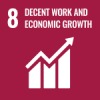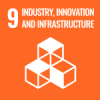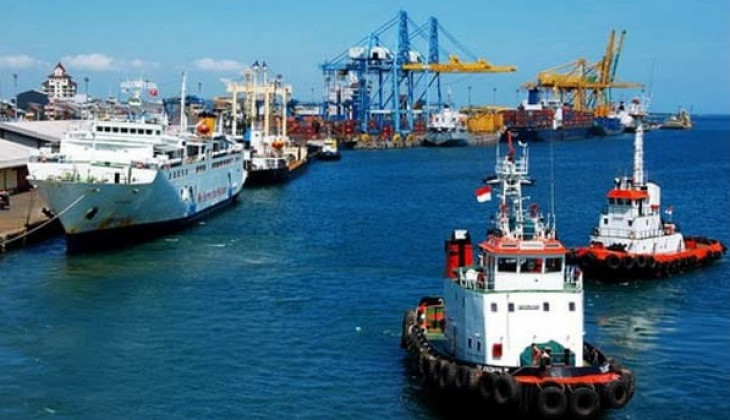Urban logistics in the future is expected to be dominated by Connected, Shared, Autonomous, and E-commerce solutions. Connected means the future urban logistics is more connected between governments, transport and logistics infrastructure providers, logistics service providers, and financial institutions.
Shared means collaboration between various stakeholders (retailers, consumers, service providers) under a common platform. Autonomous means encouraging autonomous logistics, from semi-autonomous trucks and robots to autonomous aircraft (drones) that plays an integral role in the future of delivery.
“Meanwhile, e-commerce is an important contributor to the development of urban logistics. Online retail growth has increased by almost 8 percent in the last three years,” said Erwin Raza, Deputy Assistant, National Logistic System Development, Coordinating Ministry for Economic Affairs of the Republic of Indonesia, in a Webinar on Launching and Reviewing the Book “Urban Logistics in Indonesia ” published by Gadjah Mada University Press, as well as commemorating the 19th anniversary of the Center for Transportation and logistics on Friday (10/7).
On this occasion, Erwin Raza explained the national logistics ecosystem (National Logistics Ecosystem-NLE). He called NLE a logistics ecosystem that synchronizes the flow of international goods and documents from the arrival of transportation goods at the port until the goods arrive at the warehouse (hinterland). The system is oriented towards cooperation between government and private agencies through data exchange, simplifying processes, eliminating repetition and duplication, and using information technology and digital technology.
He said the system had been promulgated through Presidential Instruction number 5 of 2020 concerning National Logistics Ecosystem Structuring, including regulations regarding platforms, business processes, spatial planning, and payments. The system regulates logistics activities from upstream to downstream, both domestically and internationally. Erwin also delivered an example of the concept of developing a connectivity node and economic integration between regions (superhub) to create an economic growth ecosystem, which was carried out in the new State Capital of East Kalimantan and Bali / Nusa Tenggara.
Dr. Kuncoro Harto Widodo, representing the team of book authors, said the book, Urban Logistic in Indonesia, contains the Basic Concept of Urban Logistics, General Issues of Urban Logistics in Indonesia, Mapping of Challenges and Perceptions of Urban Logistics Stakeholders, and Synergies between Cities and Regions within the framework of the National Logistics System. The book is prepared based on Indonesia’s theory and regulations and practices applied in Indonesia, and examples of application abroad.
“This book was published at the end of 2019, so it has not discussed Covid-19 pandemic impacts,” said a lecturer at the Faculty of Agricultural Technology UGM, as well as a senior researcher at the Center for Transportation and Logistics Studies UGM.
He said that one of the leading logistics problems is efficiency, including logistics services management, handling, and others. The questions in urban logistics are very complex, focusing on efficiency / commercial issues and non-commercial problems such as pollution and discomfort in a city that can reduce the quality of life.
“Therefore, the discussion of urban logistics is more comprehensive by considering aspects of welfare and quality of life in a broad sense. Furthermore, some common problems faced in urban logistics are limited urban areas, competition for the use of traffic space between passenger and freight transport, traffic jams, air pollution/emissions, still limited facilities for consolidation and deconsolidation”, he said.
The research results of the Center for Transportation and Logistics Studies UGM in five cities in Indonesia, namely Medan, Jakarta, Yogyakarta, Denpasar, and Makassar, show that logistics arrangements can improve quality of life. Therefore, these cities are encouraged to work together to solve urban logistics problems.
Yukki Nugrahawan Hanafi, Chairperson of the Central Executive Board of the Indonesian Logistics and Forwarders Association (ALFI) & Chairman of the ASEAN Federation for Forwarder Associations (AFFA), as the webinar discussant said that urban logistics is increasingly urgent to be developed. Currently, logistics development is still focused on ports, while the logistics aspect is broader.
“Until now, there is no clear concept so that we must continue to encourage how to integrate the logistics system. One of the essential aspects that must be considered is the commodity being transported”, said Yukki.
Yukki conveyed the Covid-19 pandemic as an opportunity for micro to large entrepreneurs because of social, economic, and cultural transformation in new directions. Logistics services include the movement of goods and people, money, and services so that they can be grouped based on the shape and scale of the commodity being managed and the form of the transaction.
He admitted that most of the logistics sector was severely affected by Covid-19, but several logistics activities could still survive and even experienced positive growth in the new and next normal. Some of these activities are e-commerce logistics services, delivery services (couriers), warehousing services for basic goods and retail goods, logistics services related to transactions B to C (Business to Consumer) and C to C (Consumer to Consumer).
The opportunity for the logistics service industry, according to him, is growing with the growth of the middle class in Indonesia (yearly disposable income of USD 5,000 – USD 35,000), which is estimated to increase by 59 percent in 2030 compared to 2014. Indonesia also has the largest market share and growth of cellular telephones in ASEAN, which encourages logistics industry opportunities.
“The market share of cellular phones in Indonesia is USD 1,682 million, with a 37 percent growth in the 2016 – 2020 period. The logistics paradigm has changed from optimization-based economic skills to disruption-based economic speed,” he explained.
Source: https://ugm.ac.id/id/berita/19712-urban-logistic-mendesak-untuk-dikembangkan



